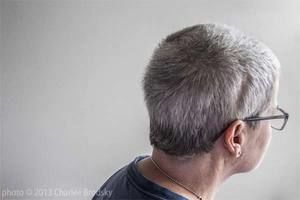
I was shaking. My heart was pounding loud and fast, and I couldn't catch my breath. I heard my voice quavering in the distance, as if through a dense fog. "I just scheduled my brain surgeries."
Saying the words out loud on the phone to my closest friend brought the world to a standstill.
A lifetime later, I heard myself whisper, “I’m freaking out.”
I could hear the terror in her voice when she responsed, “Me too.”
But once we got over the initial shock, we reverted to our usual mode of coping: humor, beginning with a list of things you don’t want to hear your neurosurgeon say. I started the list with, “Oops!” Friends and family added to the list, too, from Cindy’s, “Can you pass me that uh...um...thingy?” to my brother’s, “Do you remember how they did it on 'Grey’s Anatomy'?”
I have tangles of malformed blood vessels called cavernous angiomas scattered in my brain; two of them had bled. Several months after the bleeds, I underwent the only known treatment for this condition—two resection surgeries, one for the bleeder in the right parietal lobe, and the second for the one in the brain stem. These first two surgeries took place within a couple of days of each other. My third surgery, an emergency procedure to plug a leak from the site of the second surgery, occurred ten days later.

Between the bleeds and the surgeries, I relied on my sense of humor to keep me sane.
According to Dr. Gina Barreca, “We can use humor to put our fears into perspective. Humor addresses the same issues as fear, not to dismiss them, but to strengthen our ability to confront them and then laugh them away from the door.”
Much of the time, jokes and laughter were within fairly easy reachas I struggled with fear. I joked with anyone who learnt of my ordeal—friends, family, medical personnel. Their reactions ranged from laughter to a weak smile. A few responded with silence. Perhaps they disapproved, believing that it was inappropriate to make light of such a serious situation. Or perhaps their sense of humor didn't respond the way mine did.
My wry sense of humor helped alter my viewpoint, transforming the terrifying into the ridiculous, something too absurd to be taken seriously. Humor kept the fear from swamping me.
It wasn't foolproof. Sometimes, my ability to laugh completely deserted me, such as when depression or terror overwhelmed me.
Unlike the first two surgeries, which were planned, I had no time to emotionally prepare myself for the third. The emotional impact from the moment the third surgery was announced was profound: I was merely existing, dragging myself from one day to the next, numb, incapable of dredging up even the feeblest of jokes. I no longer felt like a survivor. I had surrendered to the bloody brain, as I referred to it, and become its victim. There was nothing left inside me to push back.
I remember speaking of my terror to my friend, bemoaning that, of the barrage of emotions that plagued me, terror, including terror of the fear itself, was the worst. I had absolutely no control over it, no matter what I tried. Panic attacks pounced without warning, slamming into me. Their terror felt like a malevolent entity had invaded my entire being, taking over my ability to think, to make choices, to function, until, in its own time, it lost interest and faded.
Linda Walter said, “Clinically speaking, a panic attack is an intense fear that results in a surge of adrenaline in our bodies.”
For me, once the surge was over, the panic dissolved into a hum of anxiety. It wasn’t ideal, but I could at least manage life with daily distractions and humor.
Humor is a part of being human and being mentally healthy. Along my journey, I have met a few brain injury patients, who seem incapable of seeing the lighter side of their ordeal. I’ve heard the phrases embracing their victimhood and malingerers associated with such people. Not having walked in their shoes—my sense of humor has remained intact post-injury—I hesitate to judge them or ascribe their humorlessness as intentional. I understand that everyone is different, with a variety of ways of coping. At the same time, I cannot imagine coping without a decent dose of humor.
Even now, a decade since the surgeries, my sense of humor serves me, especially through the times when fear and anxiety threaten. The jokes still come to my rescue when the air around me grows too heavy.
Except when they don’t.
Sometimes, the bloody brain lashes out with a new symptom or an excruciating headache, cutting me off from coping techniques. My terror that I might be experiencing another bleed overwhelms any attempt at humor. Information triggered panic, for example, learning that I am now at high risk of early onset dementia or reading that angiomas can regrow after resection suffocates humor until the panic runs its course.
Nowadays, the panic attacks are rare, and the anxiety is no longer a constant companion. These days, the adrenaline surges due to terror pass through my system much faster than they did during the early days of recovery. Now, usually within minutes, my wry sense of humor returns.
I am convinced that my sense of humor has aided the healing of both my brain and my psyche. It has helped me create a life where my world does not revolve around the bloody brain.
Laughter is indispensable to living a full life with a brain injury. Ultimately, it’s about thriving, not just surviving.
I am a thriver.
References
Barreca, Gina, Ph.D. (2013). Laughing at the Scary Stuff: We need a strong and healthy dose of focused humor in our lives every day. Psychology Today.
Walter, Linda Walter, L.C.S.W. (2011). To Fear or Not to Fear, You’re in Control: Understanding Fear and Panic - the "Circle of Fear". Psychology Today.



